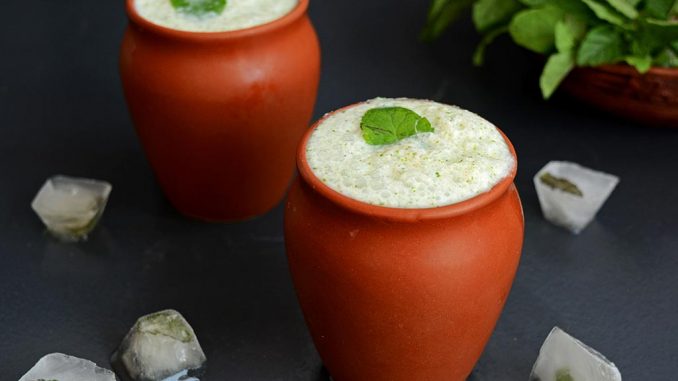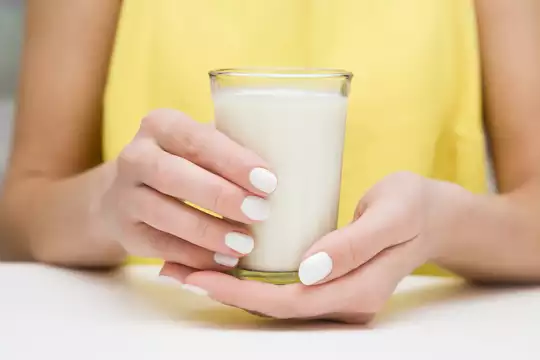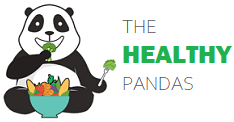
Substitute for buttermilk include vegan, low card, keto
Although historically, buttermilk was a byproduct of producing butter, today’s buttermilk is produced by fermenting milk with lactic acid bacteria. It is frequently used to prepare biscuits, pancakes, waffles, muffins, and cakes because of its acidic flavour and thicker consistency than milk. Buttermilk imparts a soft, moist feel to baked products. Baking soda in recipes is activated by its acidity and serves as a raising agent. However, many individuals don’t keep it on hand, and some don’t use it because of dietary limitations. Surprisingly, you probably already have the items you need in your cupboard or refrigerator to make substitutes for buttermilk, whether they are dairy-based or non-dairy.
How to make a substitute for buttermilk?
Whether dairy-based or not, acidity and a liquid are essential components of a buttermilk substitute. Ideally, the liquid should have a buttermilk-like flavour and consistency. A small amount of an acid, such as lemon juice, can usually be combined with a liquid, such as dairy milk or soy milk. Although it might be unpleasant to drink on its own, this mixture quickly curdles and functions well in buttermilk recipes that call for buttermilk.
Health Benefits of Buttermilk

Although buttermilk is a cultured food, unlike yogurt or kefir, it does not contain live probiotics. It still has a number of nutritious components, though. 1 cup of whole buttermilk (245g) provides 22 percent of your recommended daily calcium consumption, 16 percent of your recommended daily vitamin D intake, and 47 percent of your recommended daily B12 intake, among other vitamins and minerals, on a 2,000-calorie diet. Each cup of whole buttermilk has 152 calories. Approximately 8 grams of protein are present per cup in buttermilk made from whole milk. The amount of fat depends on whether you select low-fat or entire. Each cup of whole milk buttermilk has 8 grams.
Since buttermilk contains the highest concentration of vitamin B12 of any food, it is a great substitute for people who don’t consume meat. Red blood cell
production and a healthy brain system both depend on vitamin B12. In addition, buttermilk has health-promoting calcium, vitamin D, and protein. They are crucial components of a balanced diet and support various body functions as well as the development of bone and muscle.
Here are several dairy-based substitute for buttermilk :
Vinegar and milk
- Adding vinegar to milk gives it an acidity similar to that of buttermilk. You can use apple cider vinegar or distilled white vinegar, but distilled white vinegar has a more neutral taste.
- You can use any kind of milk, but if your substitute buttermilk recipe calls for a certain type of buttermilk—such as low fat—it may be best to use a similar type of milk to make substitute for buttermilk.
- To make 1 cup (240 mL) of buttermilk substitute, add 1 tablespoon (15 mL) of vinegar to a liquid measuring cup. Then, add milk to the 1-cup line (240 mL) and stir.
- If you measure the milk separately, you’ll need a scant — or not quite full — cup (around 220 mL).
- Though many sources recommend letting the mixture sit for 5–10 minutes before adding it to your recipe, experts suggest this isn’t necessary.
Milk and lemon juice
- Lemon juice is an acid that you can use instead of vinegar to make buttermilk.
- To make 1 cup (240 mL) of buttermilk substitute, add 1 tablespoon (15 mL) of lemon juice to a liquid measuring cup. Then, add milk to the 1-cup line (240 mL) and stir.
- You can either use fresh-squeezed lemon juice or bottled lemon juice. However, bottled varieties typically contain preservatives, such as sodium benzoate and sodium sulfite. Sulfites may trigger asthma symptoms in some people.
Milk and cream of tartar
- Another acidic substance combined with milk to make a buttermilk substitute is a cream of tartar, chemically known as potassium bitartrate.
- This fine white powder is a byproduct of making wine and has a neutral flavor.
- To make a buttermilk substitute, use 1 3/4 teaspoons (5 grams) of cream of tartar per 1 cup (240 mL) of milk.
- Cream of tartar tends to clump when stirred directly into the milk. Therefore, it’s better to mix the cream of tartar with the other dry ingredients in your buttermilk recipe, then add the milk.
- Alternatively, you can whisk the cream of tartar with 2 tablespoons (30 mL) of milk, then add this mixture to the rest of the milk to avoid clumping.
Plain, substitute buttermilk for yogurt and water or milk
- The tangy, acidic flavor and thick texture of yogurt are similar to buttermilk, so plain make for a good substitute for buttermilk.
- You can replace buttermilk cup for cup with plain yogurt, but it may work better to thin the yogurt with water or milk—especially for recipes that call for a thin batter, such as cake.
- To make 1 cup (240 mL) of buttermilk substitute, combine 6 ounces (170 grams) of plain substitute buttermilk for yogurt with 1/4 cup (60 mL) of water or milk and whisk until smooth.
Plain kefir
- Buttermilk-flavored fermented milk is known as unflavored kefir.
- Plain kefir can be substituted for buttermilk, cup for cup. Simply use 1 cup of kefir instead of buttermilk in recipes that call for 240 mL of the dairy product.
- Although kefir contains a greater variety of beneficial bacteria and other microbes than buttermilk, heating it will kill many of the microbes. Substitute buttermilk for yogurt.
Buttermilk powder and water
- Dehydrated buttermilk powder can be reconstituted with water according to the package directions.
- Buttermilk can be made by combining 1/4 cup (30 grams) of powdered buttermilk with 1 cup (240 mL) of water.
- It may be best to mix the powdered buttermilk with the other dry ingredients, then add the water when you would normally add liquid buttermilk to the recipe.
As an added benefit, vitamin A strengthens the immune system and protects the heart, lungs, and kidneys. In addition to its numerous nutritional advantages, buttermilk can also help you feel more energized. Buttermilk contains riboflavin, an energy-producing B vitamin that’s essential to your health.

Leave a Reply